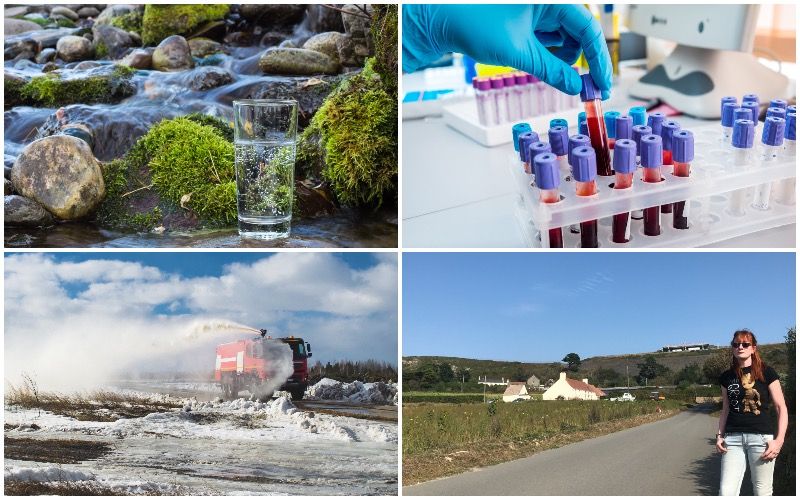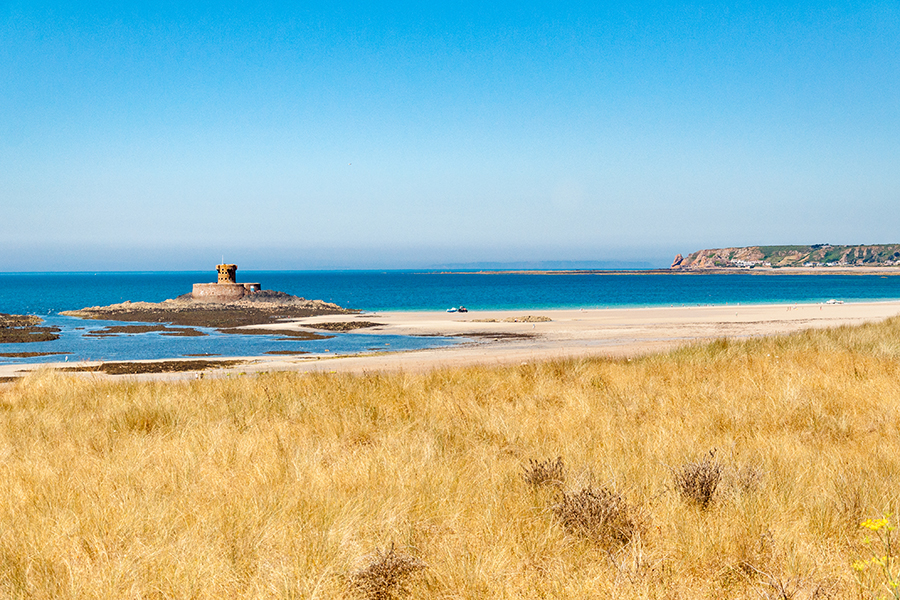


The Government appears not to have carried out any research to identify whether islanders have become ill through drinking contaminated water – despite being presented with evidence of unusual levels of cancer, thyroid problems and kidney disease.
Asked in the States Assembly on Tuesday by Deputy Kirsten Morel if studies had been carried out to identify if there had been any illnesses relating to ‘PFAS’, Environment Minister John Young said he didn’t know of any.
However, he added that he had overseen the publication of two reports, which included advice from the Medical Officer of Health, which is for people who feel that they may have been affected to visit their GP.
“It is a sad fact that our environment is contaminated in all sorts of ways,’ he said. “And what one does in environmental regulation is to set in place rules to regulate the levels of those contaminates and have efficient monitoring in place.
Pictured: Sarah Simon, who lives in St. Ouen’s Bay under the western end of the Airport runway, is campaigning for an independent committee of inquiry into PFAS.
“Sadly, in the case of PFAS, it is a ubiquitous material in the world and experts in much larger countries have concluded that it can’t be eliminated. However, we are trying to remediate and get those levels down.”
Sarah Simon – who has tested her own blood to show that it contains dangerous levels of PFAS – said she was “shocked and saddened” to hear that the Government had failed to find out if Islanders had been affected.
“Since my own health started to suffer and I discovered that dozens of people have suffered similar problems, many living close to the Airport, I have carried out my own research, including sending more that 25 Islanders’ blood for testing, and sent it to the Medical Officer of Health.
“Just in the community around where I live, there has been an unusually high incidence of illnesses that are associated with PFAS poisoning, such as liver and bladder cancer, thyroid problems and kidney stones in people of all ages, and even our pets.
“The evidence is overwhelming and yet the Government has failed to do anything about it. If they haven’t done any research, then maybe they should start.”
The issue of PFAS – a family of man-made chemicals which were added to hundreds of everyday items until they were found to be harmful to health – has been an ongoing but unresolved saga in Jersey for decades.
Miss Simon strongly believes that the health of Islanders has been affected, particularly those, like her, living close to the Airport – where firefighting foam containing one of the PFAS family, called PFOS, was sprayed until it was banned in the early 90s.
Miss Simon said: “The Government has known that PFOS pollution in ground water has taken place on this island since 1980. Every year, new scientific information emerges, and regulations evolve. One has to ask, why has the Government blatantly held on to outdated legislation regarding this matter?

Pictured: A large area of St. Ouen’s Bay is contaminated with a manmade chemical that was sprayed at the Airport in the early 90s.
“In Deputy Young’s PFAS reports, there are no recommendations to conduct a health study despite research in the US that proves that PFOA, another form of PFAS, causes high cholesterol, ulcerative colitis, thyroid disease, testicular cancer, kidney cancer, and pregnancy-induced hypertension.
“The Government has also publicly stated that there is no proof that PFOS causes disease; but surely with the knowledge available it should be looking to mitigate long-term risk at the very least.”
Miss Simon is calling for an independent public inquiry to discover the extent of PFAS poisoning in Jersey and whether further medical care is required.
Despite not testing people, the Government has tested water supplies, including boreholes and streams, and high levels of PFAS have been found, particularly in St Ouen's Bay and in the Pont Marquet area of St. Brelade.
So high is the contamination that Jersey Water is unable to fill its reservoirs from boreholes in these areas. They maintain, however, that mains water is safe to drink and meets the highest international standards of cleanliness.
Comments
Comments on this story express the views of the commentator only, not Bailiwick Publishing. We are unable to guarantee the accuracy of any of those comments.